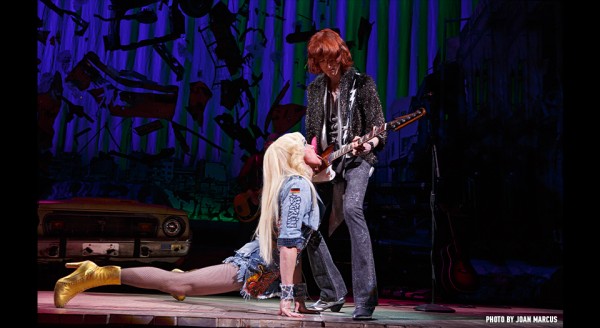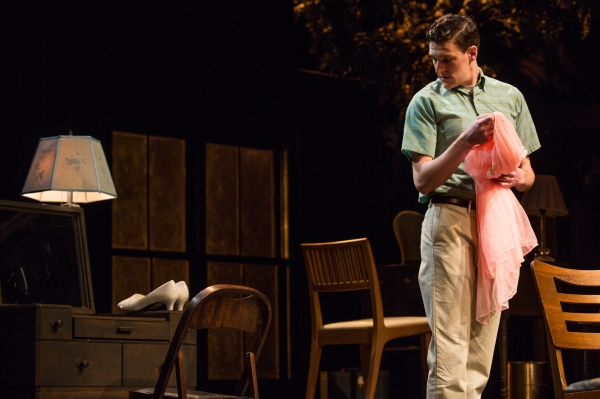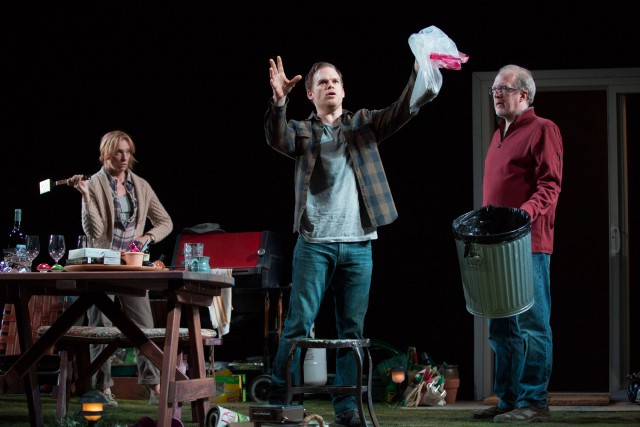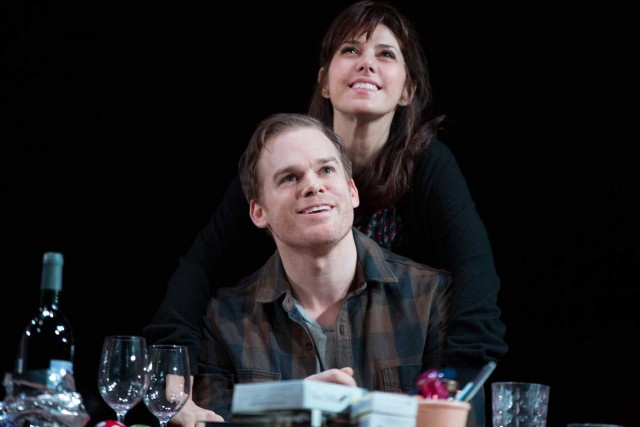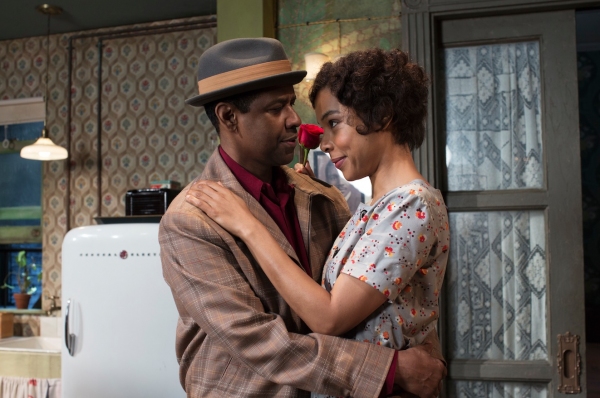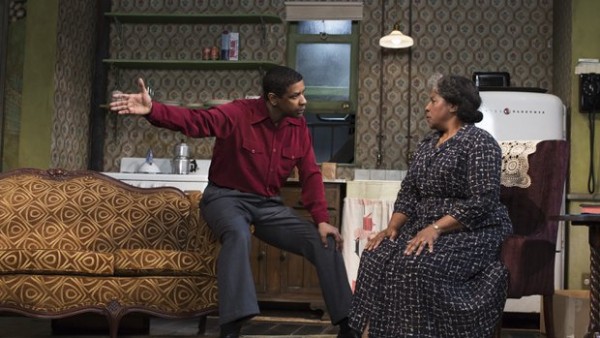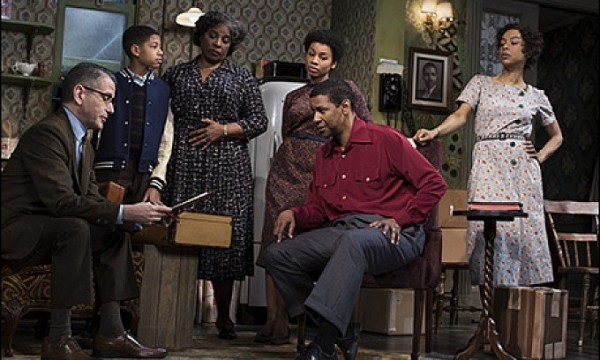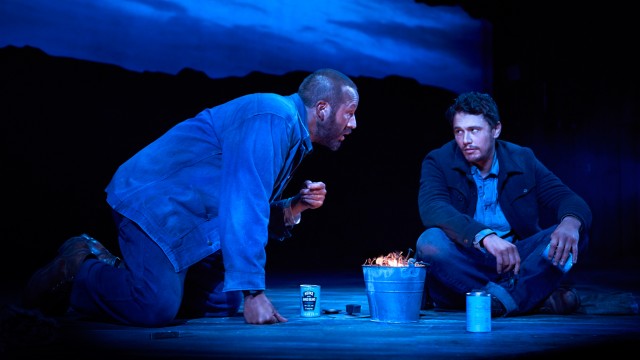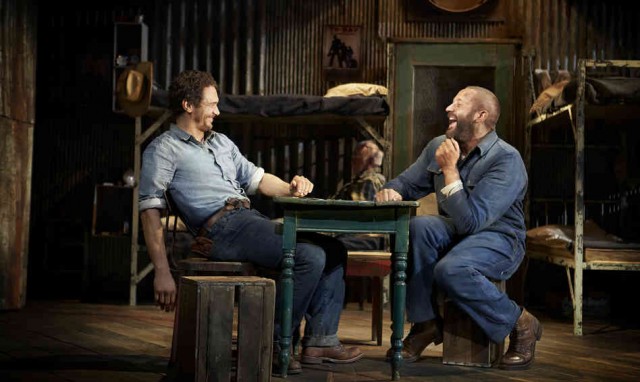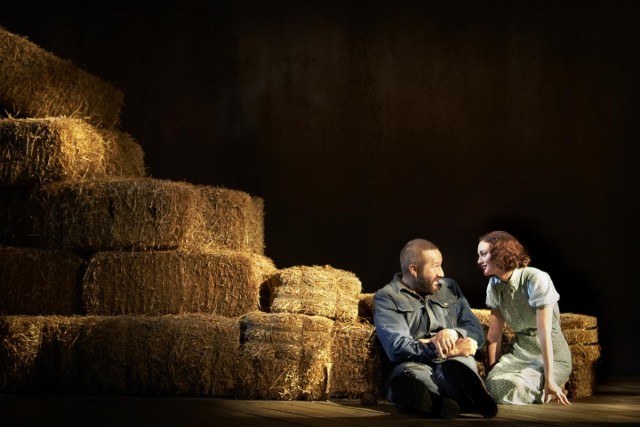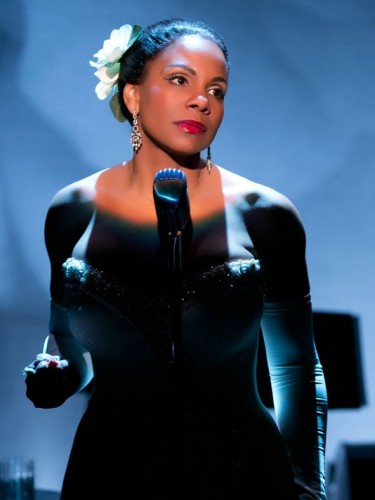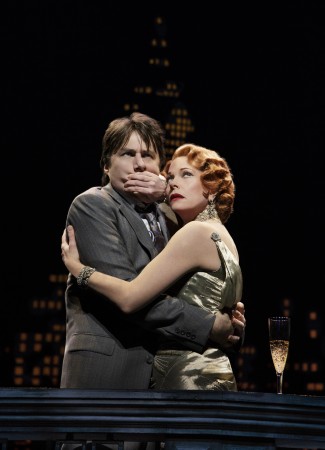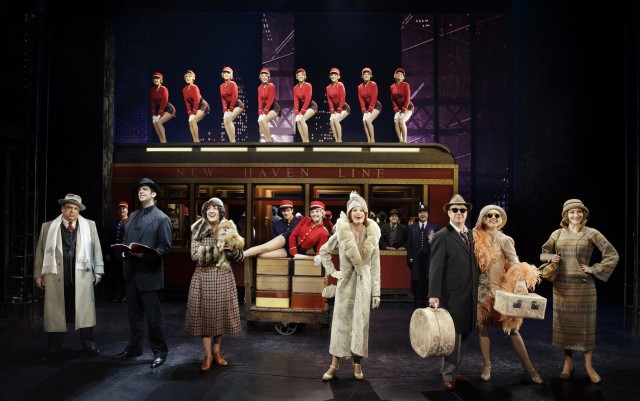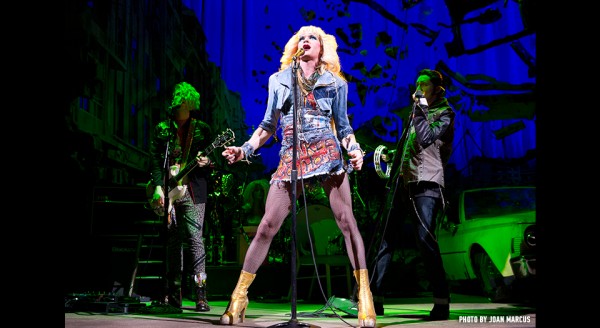
Hedwig (Neil Patrick Harris) leads his band, the Angry Inch, in confessional performance at the Belasco
Belasco Theatre
111 West 44th St. between Sixth & Seventh Aves.
Wednesday – Sunday (and some Tuesday nights) through August 17, $49 – $162
www.hedwigbroadway.com
A decidedly downtown aesthetic explodes on the Great White Way with the Broadway debut of John Cameron Mitchell and Stephen Trask’s wicked and wild musical comedy, Hedwig and the Angry Inch. Neil Patrick Harris (Assassins, How I Met My Mother) stars as German singer Hedwig, formerly known as Hansel Schmidt before a botched sex-change operation left her caught in the middle of a confusing, unrelenting world. In this updated version, Hedwig is giving a one-night-only confessional performance at the Belasco Theatre, vacant because the previous production, Hurt Locker: The Musical, closed at intermission. (Be on the lookout for a limited number of Hurt Locker Playbills that are scattered throughout the theater.) The set from that disaster is still in place, a blown-up car with shattered pieces making a visually stunning backdrop; in addition, there are cement remnants that recall the Berlin Wall. “Ladies and gentlemen, Hedwig is like that wall,” her lover, roadie, and onstage foil, Yitzhak (Lena Hall), announces at the beginning. Meanwhile, out the back door, Hedwig’s former lover and musical partner, rock star Tommy Gnosis, is in the midst of a massive Times Square concert kicking off his Tour of Atonement following a horrific traffic accident, something that rattles Hedwig, who refers to herself as “the internationally ignored song stylist.” Through self-deprecating stream-of-consciousness stage patter littered with double entendres and such hard-hitting, punk-inflected tunes as “Tear Me Down,” “The Origin of Love,” “Sugar Daddy,” and “Wicked Little Town” — Hedwig claims such “cryptohomo rockers” as Lou Reed, Iggy Pop, and David Bowie as influences — she shares her tragic story, growing up with a mother who never touched him in Berlin, being whisked away to America by an army sergeant with Gummi Bears, then falling in love with the son of a general, Tommy Speck. “I’m sorry. I’m wide open tonight,” she says. “You’re lookin’ at a locker full of hurt.”
The one-act rock opera premiered in 1998 at the Jane Street Theatre with Mitchell in the lead role; among the others who have donned the fabulous wigs are Michael Cerveris, Ally Sheedy, Matt McGrath, and Donovan Leitch. (Mitchell played the character in the 2001 film, which he also directed.) Harris is spectacular as the first Broadway Hedwig, lovingly licking the floor, spitting at the audience, and emerging from a car engine in a glorious new costume. Book writer Mitchell has added contemporary references to keep things fresh, with playfully naughty jabs at Broadway audiences and even Bob Wankel, the real president of the Shubert Organization, and Harris throws in a handful of on-target ad libs that apparently know no bounds. Michael Mayer’s (Spring Awakening, American Idiot) enthusiastic direction actually reveals some flaws in the story, particularly involving Hedwig’s search for identity through her alter ego, Tommy, but this Hedwig is still an intense, spirited experience that is an absolute blast to see at the Belasco. Just past the halfway point, Hedwig says, “Ladies and gentlemen, I hope you’re becoming fans of Hedwig. Because I find that I am growing deeply accustomed to you.” Yes, we are fans indeed.
